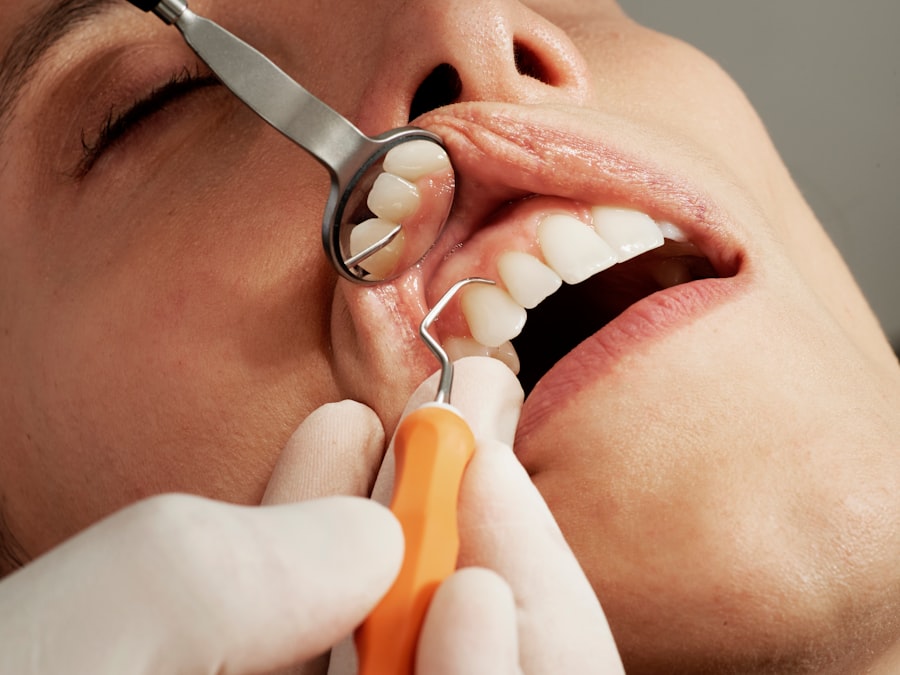Search Engine Optimization (SEO) is a critical component for any business looking to thrive in the digital landscape, and dental practices are no exception. At its core, SEO involves optimizing a website to improve its visibility on search engines like Google. When potential patients search for dental services, they typically rely on search engines to provide them with relevant results.
Therefore, understanding the fundamentals of SEO is essential for dental practices aiming to attract new patients and retain existing ones. The primary goal of SEO is to increase organic traffic to a website, which can lead to higher conversion rates. For dental practices, this means not only attracting visitors but also converting them into patients.
Key elements of SEO include keyword research, on-page optimization, technical SEO, and link building. Each of these components plays a vital role in ensuring that a dental practice’s website ranks well in search engine results pages (SERPs). By grasping these basics, dental professionals can begin to implement effective strategies that will enhance their online presence and ultimately drive more patients through their doors.
Key Takeaways
- Effective SEO for dental practices starts with understanding key principles and strategies tailored to the industry.
- Selecting the right keywords is crucial to attract local patients searching for dental services.
- Optimizing your website’s structure, speed, and mobile-friendliness improves search engine rankings.
- Creating engaging, relevant content helps build trust and authority with potential patients.
- Leveraging local SEO, social media, and online reviews enhances visibility and drives more local traffic.
Choosing the Right Keywords for Dental Practice SEO
Selecting the appropriate keywords is one of the most crucial steps in optimizing a dental practice’s online presence. Keywords are the terms and phrases that potential patients use when searching for dental services. Conducting thorough keyword research allows dental practices to identify which terms are most relevant to their services and which have the highest search volumes.
Tools like Google Keyword Planner, SEMrush, and Ahrefs can provide valuable insights into keyword performance and competition levels. When choosing keywords, it’s essential to consider both short-tail and long-tail keywords. Short-tail keywords, such as “dentist” or “dental care,” are highly competitive and may not yield the best results for local practices.
In contrast, long-tail keywords like “family dentist in [City Name]” or “emergency dental services near me” are more specific and often have lower competition. These long-tail keywords can attract more qualified leads who are actively seeking the services offered by the practice. By strategically incorporating these keywords into website content, meta descriptions, and headers, dental practices can improve their chances of ranking higher in search results.
Optimizing Your Dental Practice Website for Search Engines

Once the right keywords have been identified, the next step is to optimize the dental practice’s website for search engines. On-page optimization involves making adjustments to various elements of the website to enhance its relevance and usability. This includes optimizing title tags, meta descriptions, header tags, and image alt texts with targeted keywords.
Each page should have a unique title tag that accurately reflects its content while incorporating relevant keywords to improve visibility. In addition to on-page elements, technical SEO is equally important. This aspect focuses on the backend of the website and includes factors such as site speed, mobile-friendliness, and secure connections (HTTPS).
A fast-loading website not only improves user experience but also positively impacts search rankings. With an increasing number of users accessing websites via mobile devices, ensuring that a dental practice’s site is responsive is crucial. Google prioritizes mobile-friendly sites in its rankings, making this an essential consideration for any practice looking to enhance its online presence.
Creating Engaging and Relevant Content for Your Dental Practice Website
| Metric | Description | Recommended Value/Goal | Importance |
|---|---|---|---|
| Average Time on Page | Measures how long visitors stay on your content pages | 3-5 minutes | High – Indicates engagement and content relevance |
| Bounce Rate | Percentage of visitors who leave after viewing only one page | Below 50% | High – Lower bounce rate suggests content is engaging |
| Page Views per Visit | Average number of pages viewed during a single visit | 3 or more | Medium – Shows visitor interest in exploring more content |
| Conversion Rate | Percentage of visitors who take a desired action (e.g., booking an appointment) | 5-10% | High – Reflects effectiveness of content in driving patient actions |
| Keyword Ranking | Position of your website for targeted dental-related keywords | Top 3 positions on search engines | High – Improves visibility and attracts relevant traffic |
| Social Shares | Number of times content is shared on social media platforms | 50+ shares per key article | Medium – Indicates content relevance and reach |
| New vs Returning Visitors | Ratio of new visitors to returning visitors | 60% new / 40% returning | Medium – Balances attracting new patients and retaining interest |
| Content Update Frequency | How often new or updated content is published | At least once per week | High – Keeps content fresh and relevant |
Content is king in the realm of SEO, and creating engaging, informative content is vital for attracting and retaining visitors to a dental practice’s website. High-quality content not only helps establish authority in the field but also encourages visitors to spend more time on the site, which can positively influence search rankings. Blog posts, articles, FAQs, and service pages should be crafted with both patients and search engines in mind.
When developing content, it’s important to address common questions and concerns that potential patients may have. For instance, topics such as “What to Expect During Your First Dental Visit” or “The Importance of Regular Dental Check-Ups” can resonate with readers while incorporating relevant keywords naturally. Additionally, using visuals such as images or videos can enhance engagement and make complex topics more digestible.
Regularly updating content also signals to search engines that the website is active and relevant, further boosting its SEO performance.
Leveraging Local SEO for Your Dental Practice
Local SEO is particularly important for dental practices since most patients seek services within their geographical area. Optimizing for local search involves several strategies aimed at increasing visibility in local search results. One of the most effective ways to enhance local SEO is by creating and optimizing a Google My Business (GMB) profile.
This free tool allows dental practices to manage their online presence across Google, including search results and maps. A well-optimized GMB profile includes essential information such as the practice’s name, address, phone number (NAP), business hours, and services offered. Encouraging satisfied patients to leave positive reviews on the GMB profile can significantly impact local rankings and attract new patients.
Additionally, local citations—mentions of the practice’s NAP on other websites—can further enhance local SEO efforts. Ensuring consistency across all platforms is crucial; discrepancies can confuse search engines and negatively affect rankings.
Utilizing Social Media and Online Reviews to Boost Your Dental Practice’s SEO

Social media platforms serve as powerful tools for enhancing a dental practice’s online visibility and engagement with potential patients. By maintaining an active presence on platforms like Facebook, Instagram, and Twitter, practices can share valuable content, promote services, and interact with their community. Engaging posts that highlight patient testimonials, educational content about dental health, or behind-the-scenes glimpses of the practice can foster a sense of connection with current and prospective patients.
Online reviews play a significant role in shaping a dental practice’s reputation and influencing potential patients’ decisions. Positive reviews not only enhance credibility but also contribute to local SEO efforts by improving rankings in local search results. Encouraging satisfied patients to leave reviews on platforms like Google, Yelp, or Healthgrades can create a robust online reputation.
Responding to reviews—both positive and negative—demonstrates a commitment to patient satisfaction and can further enhance trust among prospective patients.
Measuring and Tracking the Success of Your Dental Practice SEO Efforts
To determine the effectiveness of SEO strategies implemented for a dental practice, it is essential to measure and track various metrics over time. Tools like Google Analytics provide valuable insights into website traffic, user behavior, and conversion rates. By analyzing this data, practices can identify which strategies are working well and which areas may need improvement.
Key performance indicators (KPIs) such as organic traffic growth, bounce rates, average session duration, and conversion rates should be monitored regularly. Additionally, tracking keyword rankings can help assess how well the practice is performing in search results over time. By setting specific goals—such as increasing website traffic by a certain percentage or improving conversion rates—dental practices can create actionable plans based on data-driven insights.
Hiring a Professional SEO Agency for Your Dental Practice
While many dental practices may attempt to manage their SEO efforts in-house, hiring a professional SEO agency can provide significant advantages. An experienced agency brings specialized knowledge and expertise that can lead to more effective strategies tailored specifically for the dental industry. They stay updated on the latest trends and algorithm changes in search engines, ensuring that practices remain competitive in an ever-evolving digital landscape.
A professional agency can conduct comprehensive audits of a practice’s current online presence, identify areas for improvement, and develop customized strategies that align with business goals. From keyword research to content creation and technical optimization, an agency can handle all aspects of SEO efficiently. This allows dental professionals to focus on what they do best—providing quality care to their patients—while leaving the complexities of SEO in capable hands.


